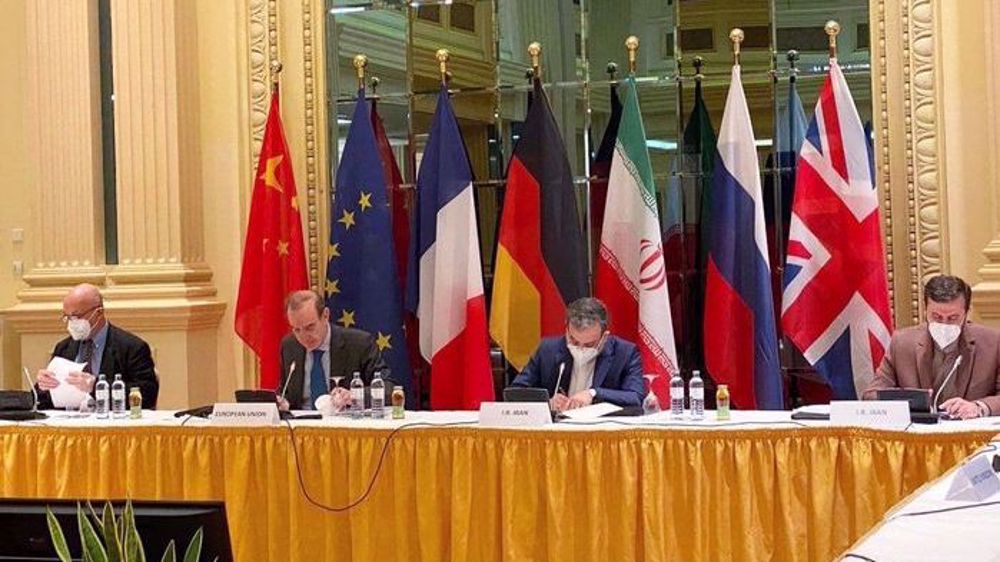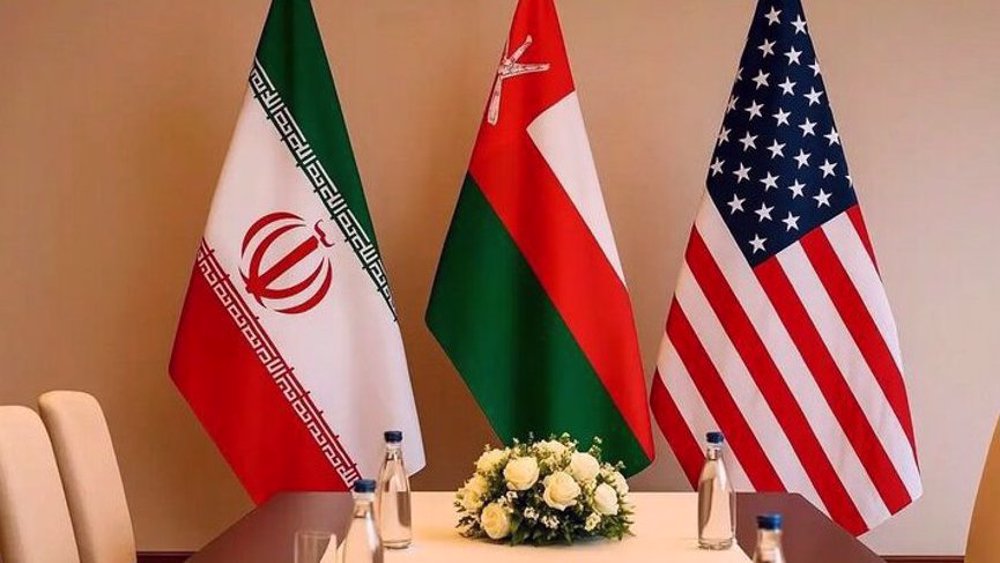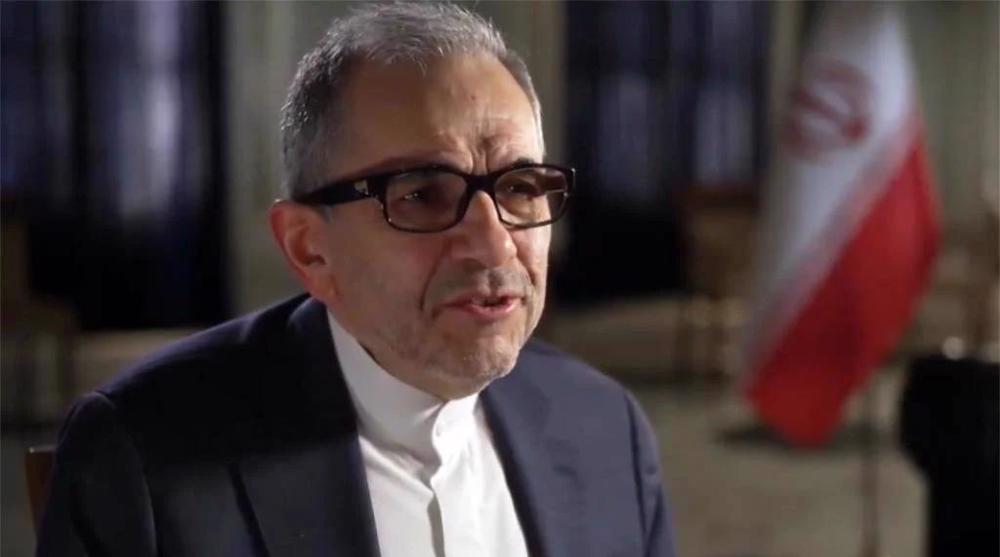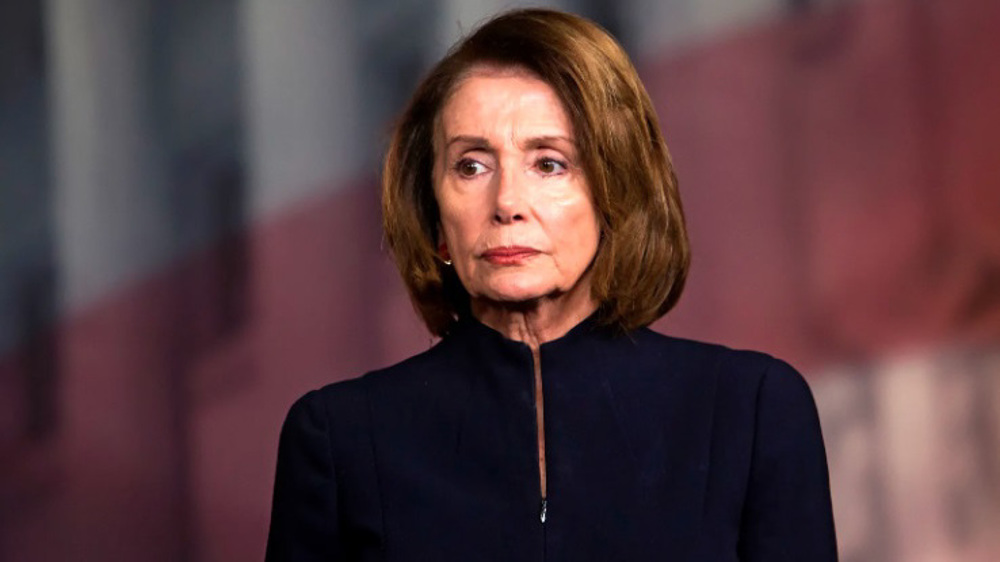As Vienna talks end, Zarif stresses Iran’s ‘logical path’ to saving JCPOA
As the latest round of talks on the 2015 nuclear deal ends in Vienna, Foreign Minister Mohammad Javad Zarif says Iran has offered a “logical path” towards the revival of the agreement, through which the US would remove the sanctions imposed by its ex-administration on Iran in their entirety — without any distinction — before Tehran does its part.
Zarif made the remarks in a tweet he posted on Friday, shortly after delegates of Iran and the co-signatories to the nuclear deal — Russia, China, France, Britain and Germany — wrapped up four days of talks and diplomatic efforts in the Austrian capital to revitalize the agreement, formally named the Joint Comprehensive Plan of Action (JCPOA).
The JCPOA has been in crisis since May 2018, when the US under ex-president Donald Trump pulled his country of the agreement and re-imposed the sanctions that had been lifted under the UN-endorsed document.
Besides, the hawkish Trump administration launched a campaign of “maximum pressure” on Iran, under which it placed on Iran several other sets of sanctions under pretexts unrelated to the nuclear issue.
A year later, Iran began to take a series of progressive retaliatory measures as part of its contractual rights under Article 36 of the JCPOA.
In his tweet, Zarif said “Iran proposes logical path to full JCPOA compliance,” explaining that the “US — which caused this crisis — should return to full compliance first,” and then Iran will follow suit and “reciprocate following rapid verification.”
Iran proposes logical path to full JCPOA compliance:
— Javad Zarif (@JZarif) April 9, 2021
-US—which caused this crisis—should return to full compliance first;
-Iran will reciprocate following rapid verification;
-All Trump sanctions were anti-JCPOA & must be removed—w/o distinction between arbitrary designations.
Critical of Trump’s Iran policy, the new US administration says it wants to rejoin the JCPOA, but has so far refused to compensate for the former president’s mistake and remove his anti-Iran sanctions, as required by Tehran.
Iran has invariably asserted that the United States must first remove all the Trump-era sanctions if it seriously seeks to return to the JCPOA.
Reaffirming that official position, Zarif added that “all Trump sanctions were anti-JCPOA & must be removed—w/o distinction between arbitrary designations,” referring to the restrictions imposed by the US on Iran under pretexts labeled “non-nuclear.”
Top negotiator: Removal of US bans a necessary step to save deal
Following the discussions in Vienna, Iran’s top negotiator, Abbas Araqchi, described the talks as “constructive.”
He added that Tehran stands ready for “serious interactions” with the co-signatories, but this will depend on the seriousness and political will of the other parties.
“Otherwise, there will be no reason for the negotiations to continue,” warned Araqchi, who serves as the deputy foreign minister for political affairs.
He said the termination of “all the American sanctions devised under Trump is the necessary step for the revival of the JCPOA. Only after verification [of the sanctions removal], Iran will be ready to stop its remedial measures and return to full compliance.”
The talks started in Vienna on Tuesday within the format of the JCPOA Joint Commission. A US delegation had also traveled to the Austrian capital, but it did not have Iran’s permission to attend the discussions.
During that session, Iran and the other JCPOA partners agreed to form two expert-level working groups, one of which was tasked with working on the possible removal of the American sanctions. The other was also assigned to take care of the nuclear issues and their implementation.
The two groups started their job swiftly and briefed the JCPOA signatories on their conclusions three days later on Friday.
JCPOA Commission to reconvene on Wed.
Following the briefing session, the participants agreed to hold another round of talks next Wednesday in the Austrian city.
It was also agreed that the next JCPOA Joint Commission will be held at the deputy-level on the first day, following which the expert groups will continue intensive technical negotiations on drawing up a list of the measures that the concerned parties should take regarding the sanctions removal and the nuclear implementation of the deal.
The Foreign Ministry said in a statement that the Iranian delegation held constant bilateral and multilateral consultations with the other five co-signatories as well as Enrique Mora, the Joint Commission’s coordinator, over the past four days.
The United States was not present in any of the sessions, the statement added.
Araqchi talks to Press TV on JCPOA discussions
Speaking to Press TV, Araqchi said that Iran and its partners in the deal are moving “in the direct direction, and we have to continue.”
He said the progress of the two working group was “fairly good,” but still their discussions need to go on, especially in the field of the sanctions lifting, which he described as “so complicated.”
Asked about Iran’s assertion that the US must remove the sanctions before Tehran takes action, the official said Tehran’s stance was “reasonable, and that is a “concept that almost everybody agreed on,” since it was Washington that first left the negotiating table.
“We need to somehow identify how this is going to happen. But before we come to that point, now we are working on the measures that both sides should take. Once we [are] done with this and once we know exactly what the US should do and Iran should do, then we have to work on the question of sequence and verification,” he said.
Araqchi also answered a question about the type of the sanctions removal that is under discussion.
“We know we have to go back to the same JCPOA model. There are sanctions which should be terminated, and the US president has the authority to terminate them…and there are sanctions which are actually the result of the Congress legislation,” said the official, adding that the second category of the sanctions could only be waived by the American president.
“We want all those sanctions [to be] reversed. Whatever imposed during the Trump administration, whatever imposed, re-imposed or re-labled, and whatever mentioned in the JCPOA should be reversed,” he said.
By verification of the sanctions removal, he added, Iran means that it should be able to see the effects of the lifting of the restrictions in practice.
“It is not enough for the US to [merely] sign waivers or executive orders…what is important to us is to see the effect of the sanctions lifting on the ground,” he said, adding that the methods of such a verification are still under discussion.
Russia, China see progress; Beijing slams US exit
Meanwhile, representatives of Russia and China to the Vienna talks said there had been progress in the diplomatic process to resolve the Iran-US dispute over the JCPOA.
“The #JCPOA (Joint Comprehensive Plan of Action) participants took stock of the work done by experts over the last three days and noted with satisfaction the initial progress made,” Mikhail Ulyanov, Russia’s envoy to the International Atomic Energy Organization (IAEA), said on Twitter.
The Joint Commission meeting in Vienna is over. The #JCPOA participants took stock of the work done by experts over the last three days and noted with satisfaction the initial progress made. The Commission will reconvene next week in order to maintain the positive momentum.
— Mikhail Ulyanov (@Amb_Ulyanov) April 9, 2021
“The Commission will reconvene next week in order to maintain the positive momentum,” the Russian diplomat added.
In another tweet, he said “for a long time we spoke about the need to restore the #JCPOA, but only now we have started to elaborate practical steps in this direction. If we succeed we can strengthen non-proliferation regime, alleviate suffering of the Iranian population and ease tension in Persian Gulf.”
Likewise, Wang Qun, China’s ambassador to the IAEA, said “the working groups and senior diplomats would intensify their discussions next week.”
“All parties have narrowed down their differences and we do see the momentum for gradually evolving consensus,” the Chinese official added.
The Chinese Foreign Ministry spokeswoman also blamed the diplomatic dispute revolving around the Iran deal on the US’s withdrawal. renewing the call for Washington to lift its sanctions against the Islamic Republic.
“The former US administration withdrew from the JCPOA and exerted maximum pressure on Iran. This is the root cause of the persistent tension of the Iranian nuclear situation,” Hua Chunying said in a post on her twitter page.
“The US should return to the deal unconditionally and lift all relevant sanctions at an early date, including long-arm jurisdictions over a third party. On this basis, Iran should resume compliance reciprocally,” she added.
EU: JCPOA parties determined to pursue diplomatic effort
In turn, senior European Union diplomat Mora, who chaired the Vienna talks on behalf of EU foreign policy chief Josep Borrell, issued a statement to elaborate on the content of the negotiations and the outcome.
“Participants took stock of the discussions held at various levels since the last Joint Commission in view of a possible return of the US to the JCPOA and discussed modalities to ensure the return to its full and effective implementation,” it said.
The participants emphasized “their resolve to further pursue the ongoing joint diplomatic effort. The coordinator will continue his separate contacts with all JCPOA participants and the United States,” the statement read.
Peace with Israel ‘not possible’ amid ongoing violations of Palestinian rights: Top diplomat
Discover Iran: The network of rivers, lakes, and wetlands of Sistan and Baluchestan
Russia: West reviving Navalny case to divert attention from Epstein scandal
Iran has ‘real ideas’ in indirect talks with US, will not submit to pressures: FM
‘Netanyahu is deceiving you’: Anti-settlement organization warns Trump
VIDEO | France, Italy, Germany call for UN special rapporteur Albanese to resign for slamming Israeli genoci
VIDEO | Kashmir prepares for Ramadan as holy month approaches
VIDEO | Two years on: Families plead for abducted Gaza doctors' release










 This makes it easy to access the Press TV website
This makes it easy to access the Press TV website